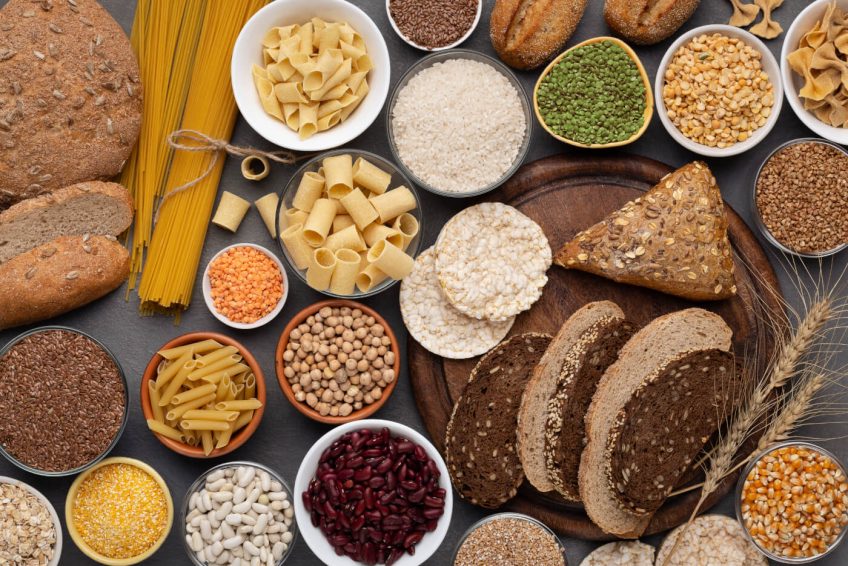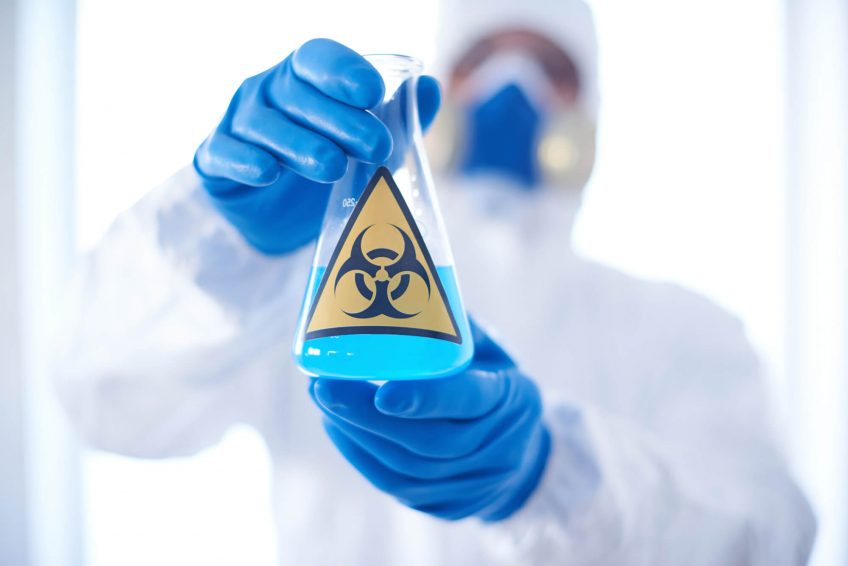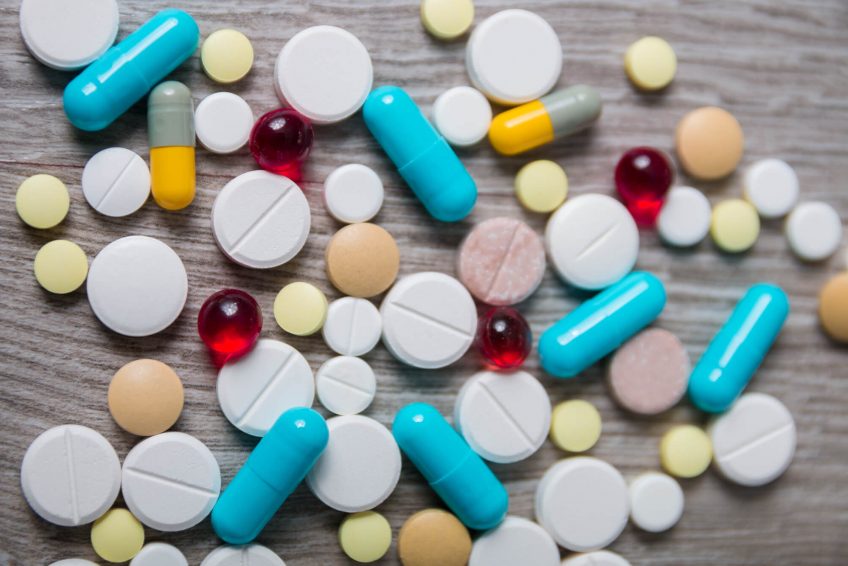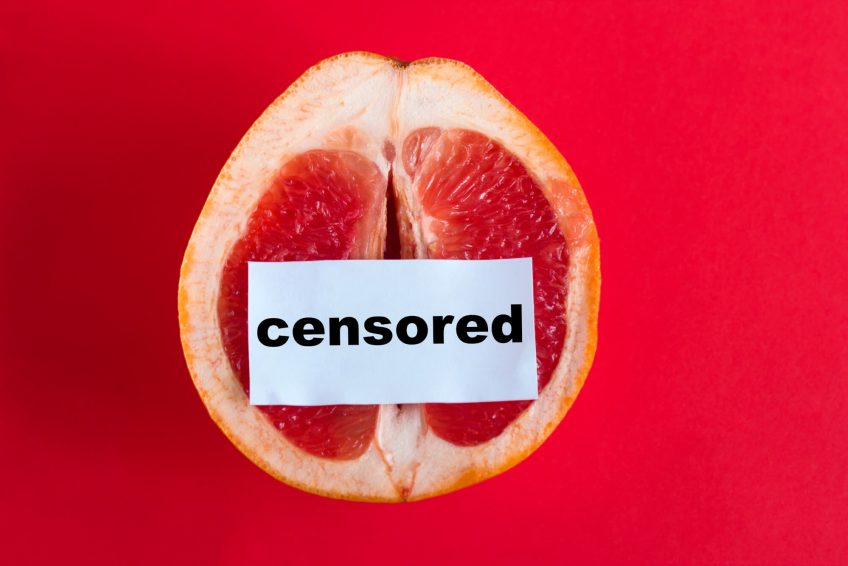HOW STRESS AND UNHEALTHY LIFESTYLE CAN DEMOLISH YOUR HAIR COMPLETELY!
Stress Can Kill Your Hair And Health
There’s no question STRESS is one of the primitive causes of most health diseases. If our health is not in equilibrium, our hair downsizes.
Surprisingly, not all types of stress are harmful. For example, EUSTRESS is actually a positive form of stress. That’s when we feel “butterflies” in our tummies maybe because we’re excited to go on a date or feel motivated in striving for a job promotion.
So, what’s the eye-popping type of stress we should watch out for? DISTRESS! Examples include sleep deprivation, depression, anxiety, agony, suicidal thoughts, and other physical and mental trauma. Uncontrolled distress ultimately raises our CORTISOL which disturbs our thyroid and ages the mitochondrion, which I talk about here.
Think of distress as an imminent threat, like an act of terrorism! I deliberately listed it as the first causative factor in my flowchart given it’s ubiquity in degenerative diseases. As soon as “terrorism strikes” in the disguise of distress, the body defends itself with armed forces I call reserve fuel. This reserve fuel makes up all the inputs and outputs for putting our minds and bodies in a state of equilibrium grace.
Exercising, meditating, meeting your micro-nutritional requirements, and sleeping in tranquility are some relevant examples of the reserve fuel.
If this tank is empty because you don’t eat enough nutritious foods or get ample sleep, you won’t have a defensible and offensive infantry to triumph over the invasion. Distress then takes over, defeats your military unit (e.g. mitochondria, liver, and thyroid), and turns your hormones upside down. Combine distress with an unhealthy lifestyle and you begin a “war” on your hair, which I label as “The Hair Loss Avalanche!” (all the events at the intercellular level leading up to hair loss).
Here are some publications backing up the hair loss-stress framework:
- Oxidative stress ages the hair follicle [1]
- Oxidative stress apparent in 27 AGA patients as a result of lower antioxidant activity and higher malondialdehyde (MDA) than the control group[2]
- Balding dermal papilla cells from male AGA patients are prematurely deteriorated from environmental and oxidative stress in vitro[3]
- Chronic resistant stress (CRS), which is equivalent to emotional distress, impeded the hair cycle in mice[4]
Take Home Message
- Distress is the type of stress that should be avoided or minimized, because it contributes to an outburst of cortisol.
- With the presence of cortisol, the mitochondrion ages quicker and the liver and thyroid become walking targets of obliteration.
- If distress is not eliminated or controlled, oxidative stress builds up impeding the natural hair cycle.
- Ample sleep, exercising, healthy eating, and meditating are some examples of living a stress free life.
At the end of the day, stress is poisonous, so make sure to annihilate it before the invasion takes over you!
Unhealthy Lifestyle Opens Up A Can Of Worms
An UNHEALTHY LIFESTYLE is one that includes a variety of many items destructive for our health and hair. Adding constant stress to the equation, you just set off the first rumble to “The Hair Loss Avalanche!”
It would be best to enumerate by order of importance the definition of an “unhealthy lifestyle”:

Gluten, Genetically Modified Organisms (GMOs), And Highly Inflammatory Foods

In a nutshell, these consists of grains[5], polyunsaturated fats (PUFAs), refined carbohydrates, refined sugary foods, soy, legumes, and dairy (specifically casein). One note of clarification, white jasmine or basmati rice is actually good for you. It’s not a harmful, refined, or bleached grain you must avoid. The same goes for quinoa.
So, what’s it that makes grains bad for your health and hair? One word – INFLAMMATION! Because our food practices and preparation have been lax due to the maximization of profits, grains and legumes are not the same today as they were 10,000 years ago. As a result, phytic acid and lectins, infamous for destroying your gut and inhibiting mineral absorption, are more present now than before.
To make matters worse, grains contain pesticides, gluten, and GMOs[6]. These are the very same inflammatory and allergenic substances[6] propagating autoimmunity by duping the immune system into thinking healthy cells are foreign antagonists thereby attacking them by mistake. What you get is, your body fighting for its life to survive, so hair is usually the first to go because it’s not important in a state of craziness.
PUFAS
The relevance of PUFAs in relation to health and hair is they’re lethal, cheap, and refined oils. They symbolize the mother of inflammation. Chris Kresser actually has a funny image[7] of one bottled PUFA with a poison label. That’s an undeniably true statement given PUFAs are rich in omega-6s, which give rise to many inflammatory diseases, including without limitation type 2 diabetes, cancer, and autoimmune disorders.[7]
Almost every processed food you can think of even something as healthy as an organic salad dressing has one or more PUFAs. If any item contains canola, soybean, safflower, sunflower, or any other of the oils listed in the table here[7] as an omega-6, avoid at all cost! Eating these types of oils over the long haul is analogous of asking for the death penalty.
In my frank opinion, due to the significant health risks, PUFAs should be permanently boycotted and black listed!
Refined And Processed Foods
When it boils down to REFINED CARBOHYDRATES (grains, cookies, chips, French fries, etc.) and REFINED SUGARY FOODS (concentrated juices, fruit snacks, ice cream, etc.) they’re also not your best friends. How come? Because they contribute to insulin resistance which I wrote about it here.
Insulin resistance is one type of an inflammatory symptom, which can raise free testosterone making it more bioavailable to bind to 5-alpha reductase and eventually convert into Dihydrotestosterone (DHT). We all know DHT is one major “termite” that loves eating our hair follicles.
Unfermented Soy And Dairy
Regarding UNFERMENTED SOY, the concern is 93 percent of it is genetically modified (GM) in the U.S.[8] That presents a huge health danger given GM soy is notorious for breaking down the immune system and thyroid, increasing cancer, instigating allergies, and promoting other diseases.[9] Due to the high GMO concentration in soy, it’s best to completely erase it from your food list.
When we speak of dairy, CASEIN, the protein in dairy, is the omen. I would slow down on dairy consumption and if possible, remove it completely from your meals. Research suggests casein can inflame the digestive system causing bloating, constipation, gas, diarrhea, and acne.[10] Even if you buy organic, the pasteurization process kills the good bacteria in your gut[10] making the end product more vulnerable to unwanted pathogens.
Perpetually straining the digestion system and removing this good bacteria can eventually lead to serious problems, such as irritable bowel syndrome (IBS) and leaky gut (a serious autoimmune disease[11]).
Can you guess what follows thereafter? That’s right, inflammation! The more you have of it, the more hair health plunges.
Take Home Message
To bring it all together cohesively, inflammation is the root cause of most diseases including hair loss and it all starts from what we put in our mouths.
If you habitually eat inflammatory, GMO foods, you’re at high risk of developing autoimmune disorders, such as leaky gut and IBS. When this happens, all hell breaks loose where unwanted pathogens that are usually pinned down by a fortified gut enter into your blood stream wreaking havoc on your whole body.
At that point, all I can say is God be with you!
So, to avoid this unwelcoming event, make sure to block the following inflammatory, GMO, lectin, and phytic acid rich groups of foods:
- Grains (e.g.oatmeal, bread, legumes, etc.).
- PUFAs (e.g. canola, soybean, safflower, sunflower, etc.).
- Refined processed foods (e.g.cereal, cookies, ice cream, chips, popcorn, french fries, etc.).
- Unfermented soy and dairy (we weren’t meant to drink and eat the sex hormones of another species).

Toxicity And Carcinogens In Our Environment, Beauty, And Hygienic Care Based Products

Environmental Toxins
We’re constantly entrapped in a world full of pollution, contaminated water, radioactive emission from technological devices, and to some extent, insecticides during the insect season. I am sure there are hundreds of different families of toxicity, but nothing strikes me more than CONTAMINATED WATER!
Water is a necessity and in some countries, drinking contaminated water is the only option for survival due to the unavailability of a well-established irrigation system.
If that’s the case for you, I would regretfully have to say, live with what you have until more resources are developed. My prayers and heart go out to you for finding a better, more comfortable, and healthier way of living life.
If, on the other hand, you have access to clean, filtered water, you may want to continue reading on. The fact just in the U.S. alone there are high levels of fluorine and unknown toxins like polyfluoroalkyl and perfluoroalkyl in 33 states is disturbing.[12] Even more jaw dropping, our water supply contains other crap ranging from plastics to kitchenware pots and pans.[12]
The fact these types of toxic compounds have been strongly associated with cancer, hormonal degradation, high cholesterol, and obesity[12] is twice as more disconcerting!
Without a filter or purification system, drinking unpurified water is the absolute worst action you can take because you’re in essence the filter. Think about it! You’re not only breathing transportation pollution but drinking it as well with all sorts of nasty bacteria.
Do yourself a favor, to save your health and hair from a violent disaster, drink clean, toxic-free water. You will feel much better and more alive, since protective water is a symbol of life.
Cosmetic Products
Flipping the page, tap water is not only a dangerous health risk, but COSMETIC, BEAUTY, and SKIN CARE based products are just as bad. What I am talking about is shampoo, lotion, soap, sunscreen, hair spray, gel, and the like. They all come from a big family of troublemakers I call endocrine system “blackouts”.
Yes, I know the word sounds embellished and too farfetched. However, the laws of nature and research dictate these so called “safe” agents we use on our hair, face, and body everyday have the potential over time to cause problems with our power supply unit (i.e. endocrine system). They are synthetic, enriched with parabens, carcinogens, sodium laurel sulfate, formaldehydes, preservatives, surfactants… and the list is never ending.
For example, parabens found in heterogeneous hair and skin care products including sunscreen have been shown through a series of different studies to possess catastrophic properties on the endocrine system and cellular mitochondria.[13] Parabens “annoy” the endocrine system glands by activating the oestrogen receptor and sealing off the androgen receptor’s activation with another binding substance (i.e. agonist).[13] On a massive scale, they also damage DNA, mitochondrial functionality, and potentiate reactive oxygen species and nitric oxide.[13]
As a consequence of these frantic behaviors, prolonged paraben exposure act as bottlenecks on our power supply network. When this occurs, the haunting news is our hair longevity and reproductive health have to pay a steep price. That’s our hormones will be out of whack. Hormonal upswings and downswings are a well-known core cause of losing your hair as discussed here and associated with cancer, depression, fatigue, and many other disorders.
Even if a product has no parabens or the other synthetic materials I mentioned previously have pebble-size hazardous effects on humans, I would still brush them away. They might not pose health alerts now, but what about in 10, 20, 30, or even 50 years?
And if you still feel psychologically gratified of buying organically-labeled items, well I’ve remorseful news for you. They still contain other toxic chemicals detrimental to your skin and internal wellness. Studies on these types of chemicals remaining in the shadows of the public eye may be finite or absent.
Give it a couple of years, and I can assure you the emergence of a new paper will sprout out from the medical database. In that event, unsurprisingly, public awareness and consumer pressure will influence the addition of such toxic compounds that were once inconsequential on the blacklist.
With that in mind, please don’t take SHAMPOOS light-heartedly. They are just as ugly as the other hygienic products. Why is that? Shampoos not only alter your hormones unkindly, they strip away natural oils (sebum) causing the sebaceous glands to over secrete sebum.
Every time you use shampoo, your body is tricked into thinking the scalp has no sebum, so what does the body end up doing? Produce excessive sebum to compensate for the loss. Over time, excessive sebum will get stuck in your hair follicles (think of it like a thick lubricant clogging a sink) and the commencement of hair loss will soon follow thereafter.
I try to keep my life extremely simple – if it’s not God made, why consider it? If you can’t read it, don’t “eat” it!
Be mindful, your endocrine system is the body’s infrastructure. It’s a collection of glands that orchestrates everything from metabolism to hormonal activity, sleep, sex drive, and growth. They’re like little messengers telling each organ how to function.
Take Home Message
- Environmental toxins in our water supply, air, food, and technology play a huge role in cancer, hormonal volatility, high cholesterol, and obesity.
- If available, use water filters and eat organic foods that contain less pesticides while keeping a good balance with the use of technological devices.
- Cosmetic beauty care products (shampoos, lotions, hair spray, gel, etc.) are endrocrine system irritants further damaging DNA, thyroid, and mitochrondria.
- Shampooing removes natural sebum causing the body to overproduce sebum that eventually leads to oily scalp, dry skin, and hair loss
Any exposure to an environmental toxin whether it’s regarded by the government and health care industry as “safe” is a malicious tactic setting you up for a costly, vicious trap. Just know, an ongoing buildup of toxins produces ill-wide effects inflaming and demoralizing circulation and thyroid optimality.[14]
As a result of compromising your endocrine system, a health crisis and an epic melt down on your seductive hair empire are bound to happen!

Too Many Whey Protein Shakes
I wrote about this here. The gist of demonizing whey protein lies in my anecdote and clinical experiments when it comes to fluctuating your hormones turbulently. The specific hormonal explosion I am referring to is liberal concentrations of serum Insulin-like Growth Factor-1, estrogen, cortisol, and insulin that all induce androgens in the context of hair loss.

Medications

Be watchful of certain medications, such as METFORMIN used as type 2 diabetes sustenance. It’s not a common side effect listed on WebMD’s main profile page about hair loss medications[15], so it’s highly likely most doctors are unadvised or unaware of this risk.
In case your curiosity is above the clouds, there’s an entire informative thread[16] where the majority of metformin patients either noticed more hair loss or thinning hair.
Moreover, cessation of hair loss drugs, such as finasteride[17] and minoxidil[18], can contribute to losing your hair gains or more hair.
If you must be medicated with a treatment that may ruin your hair, try reducing the frequency and dosage if possible within safe parameters per your doctor’s advice. Next, subject to your doctor’s approval, supplement the lower frequency and dosage with a natural remedy (e.g. garlic if you have high blood pressure, berberine if you have type 2 diabetes, etc.) considering it doesn’t interfere with your medication.

Masturbating Excessively

As disgusting and mortifying this may sound, there’s actually some persuasive data that too much MASTURBATION may cause hair loss.
From what I heard and came across, frequent masturbation and sex may lead to hair loss. It could potentially cause an uptick in androgenetic and hormonal activities fostering an imbalance.
This study[19] points at the significant elevation of the following steroids after ejaculation from masturbation:
a) Pregnenolone
b) Testosterone
c) Androstenedione
d) Dehydroepiandrosterone (DHA)
e) DHT
f) oEstrone (less potent than the stronger oestradiol)
g) oEstradiol
h) Cortisol
i) Luteinizing hormone (LH)
I know that’s a chalk full, but the most important of these sex hormones in the hair loss compartment are testosterone, DHT, oestradiol (synonymous of estradiol E2), and cortisol.
First, to keep things clear, I believe the testosterone measured in the study was of the free kind, otherwise, how would DHT rise? DHT gets converted from 5-alpha reductase when this enzyme binds to free testosterone not total testosterone.
Second, just because there’s a higher level of serum DHT doesn’t mean baldness is more likely to advance![20] To devise a more unbiased approach, we have to rule out these two underliers. What we’re left with is oestradiol and cortisol, the two suppressive hair vigor hormones. To learn more about the rationale of why oestradiol and cortisol carry a bad reputation in the hair loss field, navigate here and here, respectively.
Another source deserving the spotlight goes on to conclude masturbation substantially increases prolactin one hour post ejaculation than sexual arousal without orgasm.[21] From what we know about prolactin’s relationship to baldness here, estrogen as confirmed in the first study above is a prolactin stimuli.
In other words, estrogen causes the birth of prolactin, so more estrogen equals more prolactin. Prolactin is a stress hair bomb #2 and cortisol is a stress hair bomb #1, so it’s no surprise that both are elevated in AGA individuals.[22]
Take Home Message
Thus, we can say the results of these two robust masturbation studies are “heavy hitters” in the whole masturbation-hair loss paranoia bubble.
- Too much masturbation can adversely rumble your hormones leading to hair loss.
- If you think of it from a logical standpoint, frequent ejaculation releases vital vitamins, minerals, protein, sperm, and amino acids that are the lifeblood for modulating gene expression within the hair cycle. Now, imagine if you’re in a constant state of struggling to replenish those key hair growth ingredients. Your hair would be at a higher risk of falling apart!
Just remember, everything in moderation is key. You never want to strain your body or overexert yourself in anything you partake in. Whether or not you believe in my theory or the evidence supporting the masturbation-hair loss relationship, abstaining from this impure act is your choice.
In my opinion, abstinence would be the most dignified in spirituality terms as to connecting better with the Almighty!
References
Note: If any blue hyperlinks are broken, you’re NOT out of luck. For your convenience, I have included the origin of these references below in case you want to chase down the full studies.
1. Trüeb RM. Oxidative stress in ageing of hair. International Journal of Trichology. 2009;1(1):6-14. doi:10.4103/0974-7753.51923.
2. Prie B, Iosif L, Tivig I, Stoian I, Giurcaneanu C. Oxidative stress in androgenetic alopecia. Journal of Medicine and Life. 2016;9(1):79-83.
3. Upton JH, et al. Oxidative stress-associated senescence in dermal papilla cells of men with androgenetic alopecia. Journal of Investigative Dermatology. 2015;135(5):1244-1252. doi: 10.1038/jid.2015.28.
4. Liu N, Wang L-H, Guo L-L, et al. Chronic restraint stress inhibits hair growth via substance P mediated by reactive oxygen species in mice. Brandner JM, ed. PLoS ONE. 2013;8(4):e61574. doi:10.1371/journal.pone.0061574.
5. Grain Free Living (2017, April 10). List of grain and grain-free foods. Retrieved from http://www.grainfreeliving.com/list-of-grain-and-grain-free-foods/.
6. Katie, W. (2017, September 30). The real problem with grains. Retrieved from https://wellnessmama.com/575/problem-with-grains/.
7. Kresser, C. (2010, May 8). How too much omega-6 and not enough omega-3 is making us sick. Retrieved from https://chriskresser.com/how-too-much-omega-6-and-not-enough-omega-3-is-making-us-sick/.
8. Kelly, M. (2012, October 30). Top 7 genetically modified crops. Retrieved from https://www.huffingtonpost.com/margie-kelly/genetically-modified-food_b_2039455.html.
9. Daniel, K. (2012, December 16). The dark side of soy. Retrieved from http://drkaayladaniel.com/summing-up-the-whole-soy-story-the-dark-side-of-americas-favorite-health-food/.
10. Myers, A. (n.d.). The dangers of dairy. Retrieved from https://www.amymyersmd.com/2013/4/the-dangers-of-dairy/.
11. Fasano, A. Leaky gut and autoimmune diseases. Clinical Reviews in Allergy and Immunology. 2012;42(1):71-78. doi:10.1007/s12016-011-8291-x.
12. Feldscher, K. (2016, August 9). Unsafe levels of toxic chemicals found in drinking water of 33 states. Retrieved from https://news.harvard.edu/gazette/story/2016/08/unsafe-levels-of-toxic-chemicals-found-in-drinking-water-of-33-states/.
13. Darbre, P. D. and Harvey, P. W. (2008), Paraben esters: review of recent studies of endocrine toxicity, absorption, esterase and human exposure, and discussion of potential human health risks. J. Appl. Toxicol. 2008;28(5):561–578. doi:10.1002/jat.1358.
14. Cayce, E. (n.d.). Overview of baldness. Retrieved from https://www.edgarcayce.org/the-readings/health-and-wellness/holistic-health-database/overview-of-baldness/.
15. Hair loss centre: Medication-induced hair loss. (n.d.). WebMd Website. Retrieved October 3, 2017, from https://www.webmd.boots.com/skin-problems-and-treatments/hair-loss/medication-induced-hair-loss.
16. Redwestpow (n.d.). Metformin causing your hair to fall out. Message posted to http://www.diabeticconnect.com/diabetes-discussions/general/11408-metformin-causing-your-hair-to-fall-out.
17. Daama55 (n.d.). What happens if I stop taking Finasteride and start using Minoxidil? Message posted to https://www.realself.com/question/east-kingston-nh-stop-finasteride-start-minoxidil.
18. Jaberi (n.d.). Is it true if you stop using Minoxidil your hair will fall? Message posted to https://realself.com/question/boston-ga-true-stop-minoxidi-hair-fall.
19. Purvis, B.M. Landgren, Z. Cekan, and E. Dicfalusy. Endocrine effects of masturbation in men. J Endocrinol. 1976;70(3):439-444. doi:10.1677/joe.0.0700439.
20. Urysiak-Czubatka I, Kmieć ML, Broniarczyk-Dyła G. Assessment of the usefulness of dihydrotestosterone in the diagnostics of patients with androgenetic alopecia. Advances in Dermatology and Allergology/Postȩpy Dermatologii i Alergologii. 2014;31(4):207-215. doi:10.5114/pdia.2014.40925.
21. Krüger TH, Haake P, Hartmann U, Schedlowski M, Exton MS. Orgasm-induced prolactin secretion: feedback control of sexual drive? Neurosci Biobehav Rev. 2002;26(1):31-44. doi: 10.1016/s0149-7634(01)00036-7.
22. Schmidt JB. Hormonal basis of male and female androgenic alopecia: clinical relevance. Skin Pharmacol. 1994;7(1-2):61-66. doi:10.1159/000211275.